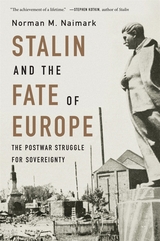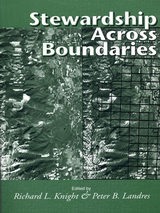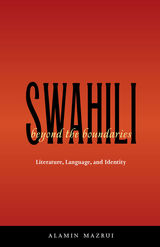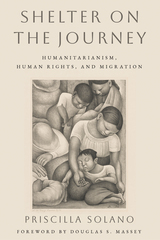4 start with S start with S

During the 1991 Gulf War, pundits and experts scrambled unsuccessfully to explain Iraq's “claim” to Kuwait. In a lucid and measured account of a complex historical and geographic drama that culminated in Operation Desert Storm, David Finnie elucidates the long Kuwaiti-Iraqi border dispute and lays Saddam Hussein's dubious claim to rest. He also raises larger questions about European colonialism and about the creation of new nation-states in the Middle East in the nineteenth and twentieth centuries.
Finnie vividly portrays how arbitrary the drawing of frontiers can be, and how they come to serve internal, regional, and international rivalries and ambitions. This history begins in the eighteenth century, when Kuwait was first settled by nomads from the Arabian desert. Finnie describes the country's growing prosperity under a merchant oligarchy, then shows how the Kuwaitis, seeking British protection from the sprawling Ottoman Empire, came to serve England's imperial strategy. He details the ways in which Britain parlayed its mandatory control of Iraq and its protectorate over Kuwait to curb the larger nation's ambitions and to ensure Kuwait's independence under British auspices.
A fresh look at British diplomatic documents reveals how Whitehall covered its tracks, heading off the Iraqis, obfuscating League of Nations proceedings, and confounding scholars and researchers down to the present day. Pursuing his story through Britain's withdrawal from the Persian Gulf and Iraq's 1963 recognition of Kuwait's boundaries, Finnie examines the U.N. post-war measures to secure the frontier in the face of Iraq's continuing pressure for better access to Gulf waters.

Winner of the Norris and Carol Hundley Award
Winner of the U.S.–Russia Relations Book Prize
A Financial Times Best History Book of the Year
The Cold War division of Europe was not inevitable—the acclaimed author of Stalin’s Genocides shows how postwar Europeans fought to determine their own destinies.
Was the division of Europe after World War II inevitable? In this powerful reassessment of the postwar order in Europe, Norman Naimark suggests that Joseph Stalin was far more open to a settlement on the continent than we have thought. Through revealing case studies from Poland and Yugoslavia to Denmark and Albania, Naimark recasts the early Cold War by focusing on Europeans’ fight to determine their future.
As nations devastated by war began rebuilding, Soviet intentions loomed large. Stalin’s armies controlled most of the eastern half of the continent, and in France and Italy, communist parties were serious political forces. Yet Naimark reveals a surprisingly flexible Stalin, who initially had no intention of dividing Europe. During a window of opportunity from 1945 to 1948, leaders across the political spectrum, including Juho Kusti Paasikivi of Finland, Wladyslaw Gomulka of Poland, and Karl Renner of Austria, pushed back against outside pressures. For some, this meant struggling against Soviet dominance. For others, it meant enlisting the Americans to support their aims.
The first frost of Cold War could be felt in the tense patrolling of zones of occupation in Germany, but not until 1948, with the coup in Czechoslovakia and the Berlin Blockade, did the familiar polarization set in. The split did not become irreversible until the formal division of Germany and establishment of NATO in 1949. In illuminating how European leaders deftly managed national interests in the face of dominating powers, Stalin and the Fate of Europe reveals the real potential of an alternative trajectory for the continent.

Every piece of land, no matter how remote or untrammeled, has a boundary. While sometimes boundary lines follow topographic or biological features, more often they follow the straight lines of political dictate and compromise. Administrative boundaries nearly always fragment a landscape, resulting in loss of species that must disperse or migrate across borders, increased likelihood of threats such as alien species or pollutants, and disruption of natural processes such as fire. Despite the importance and ubiquity of boundary issues, remarkably little has been written on the subject.
Stewardship Across Boundaries fills that gap in the literature, addressing the complex biological and socioeconomic impacts of both public and private land boundaries in the United States. With contributions from natural resource managers, historians, environmentalists, political scientists, and legal scholars, the book:
develops a framework for understanding administrative boundaries and their effects on the land and on human behavior examines issues related to different types of boundaries -- wilderness, commodity, recreation, private-public presents a series of case studies illustrating the efforts of those who have cooperated to promote stewardship across boundaries synthesizes the broad complexity of boundary-related issues and offers an integrated strategy for achieving regional stewardshi.
Stewardship Across Boundaries should spur open discussion among students, scientists, managers, and activists on this important topic. It demonstrates how legal, social, and ecological conditions interact in causing boundary impacts and why those factors must be integrated to improve land management. It also discusses research needs and will help facilitate critical thinking within the scientific community that could result in new strategies for managing boundaries and their impacts.

Swahili literature is a hybrid that is being reconfigured by a conjuncture of global and local forces. As the interweaving of elements of the colonizer and the colonized, this hybrid formation provides a representation of cultural difference that is said to constitute a “third space,” blurring existing boundaries and calling into question established identitarian categorizations. This cultural dialectic is clearly evident in the Swahili literary experience as it has evolved in the crucible of the politics of African cultural production.
However, Swahili Beyond the Boundaries demonstrates that, from the point of view of Swahili literature, while hybridity evokes endless openness on questions of home and identity, it can simultaneously put closure on specific forms of subjectivity. In the process of this contestation, a new synthesis may be emerging that is poised to subject Swahili literature to new kinds of challenges in the politics of identity, compounded by the dynamics and counterdynamics of post–Cold War globalization.
READERS
Browse our collection.
PUBLISHERS
See BiblioVault's publisher services.
STUDENT SERVICES
Files for college accessibility offices.
UChicago Accessibility Resources
home | accessibility | search | about | contact us
BiblioVault ® 2001 - 2024
The University of Chicago Press









